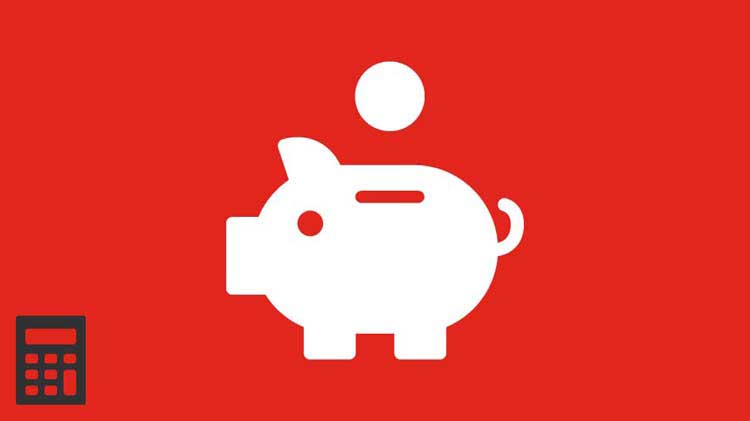When does it make sense to get a loan?
Read about loan types, instances where you may want to borrow money and additional information to help make an informed decision if you decide to take out a loan.
Few of us go through life without ever applying for loans or borrowing money. Borrowing and repaying money can help you establish a credit history that can make it easier to get financing when you need it. But it's important to use credit responsibly so it can benefit your finances, rather than harm them.
Type of loans
There are different types of loans and for specific purposes. Secured loans require a collateral and unsecured loans do not require collateral. Usually, secured loans have a lower interest rate than unsecured loans. This is because the financing institution will be taking a lower risk when lending you money, because they can take possession of the collateral in the case the person defaults on payments.
Here are the most common types of loans:
- Personal loans. These loans may have higher interest rates when compared with other loan types since they are unsecured. You can use the money for a wide range of purposes, from completing home improvements to enjoying a vacation.
- Car loans. These loans are secured and will use the financed vehicle as collateral. Depending on the car you are purchasing, they may offer low interest fixed rates and, in some cases, even zero percent interest.
- Mortgage loans. These are another type of secured loan, and your home will be the collateral. Depending on the type of mortgage you apply for, you may have different terms, length and types of rates (variable or fixed).
- Student loans. These are designed to help students pay for college. In many cases, the loans are offered by the government and may have reasonable interest rates. Depending on the loan you take, you may begin paying it back after you graduate. It can also be beneficial to look at other options to help pay for college like scholarships and grants.
- Debt consolidation loans. Designed to lower the overall interest rate and consolidate your credit card debt into a single payment, these loans can assist you in organizing and managing your credit obligations.
- Home equity loans. These include loans and lines of credit (HELOC). They are secured, with the equity of your home serving as collateral. Generally, this loan or credit is used for major home improvements or other big purchases. It’s important to note that if you default in your payments, you could potentially lose your house. The loans usually have a fixed interest rate, while the line of credit will have variable rates. Consider using our calculator to help determine how long it will take to pay off a HELOC.
- Payday loans. These loan types generally come with very high interest rates and need to be paid in full on your next payday. People may get them for an emergency, but they should be used with extreme caution as they can lead to a cycle of debt if not managed properly.
Reasons to take out a loan
- You're buying a home. To make a home purchase, most buyers need a mortgage loan. This type of financing is often considered good debt because a home is an investment that's anticipated to increase in value over time. The caveat? Look at your entire financial picture and budget before taking on a home loan, and see that you're buying a home you can truly afford.
- You're adding to your education. If you're going to college, finishing up an advanced degree or need additional training to move ahead in your career, taking out a student loan can be an option. Shop around for the most favorable rates and repayment plan. Consider starting with federal loan options first, and then move to private options.
- You're setting up a household. You'll need some basics to begin with, such as a bed or a refrigerator. Essential appliances and furniture can often be purchased through installment financing from the store, but don't overdo it. Not everything in your first place needs to be new. Thrift stores, yard sales and family members can be good sources of basic furnishings that tide you over until you can afford the items you want.
- You're consolidating debt. If you have several credit cards with high interest rates, it might make sense to get a loan to achieve a lower overall interest rate and smaller payments. Consolidation may be an option. But note: Put those cards away once you leverage the loan to pay them off. Don't rack up new charges as you're paying off the consolidation loan.
Reasons to avoid a loan
- You want to buy extravagant holiday gifts. It's not a good idea to borrow money, either through a loan or on your credit card, to spend above your means. Instead, try to choose meaningful, less expensive ways to remember others during the holidays. Perhaps creating a holiday budget will be helpful for future holidays.
- You'd like a nice wedding. Taking out a loan for a ceremony and reception that you can't afford could start your marriage out with debt. Scale back your plans to fit your budget, find creative ways to save money through the planning process and focus more on enjoying the special day.
- You need a vacation. Travel typically costs more than you think it will, and if you have to take a loan simply to go on the trip, you're better off finding more affordable ways to relax and recharge.
Other loan considerations
- Borrow only what you need. While it's tempting to borrow more, you'll end up having more to pay back and risk undermining your budget.
- Shop around for good rates. Compare interest rates and payment terms. If you have a good credit score, you may be able to negotiate a better offer.
- Pay off credit card balances every month. Carrying a balance means you'll pay more for every purchase you make, in the form of interest charges on the amount.
- Consider checking your credit report three times a year. Pull one report every four months from one of the three credit bureaus at annualcreditreport.com to confirm everything on your report is correct and accurate.
Now that you have learned information about loans, you may want to use the following calculators to help you understand potential payment amounts if you decide to get one.
- General loan calculator
- Car loan comparison calculator
- Home equity line of credit calculator




